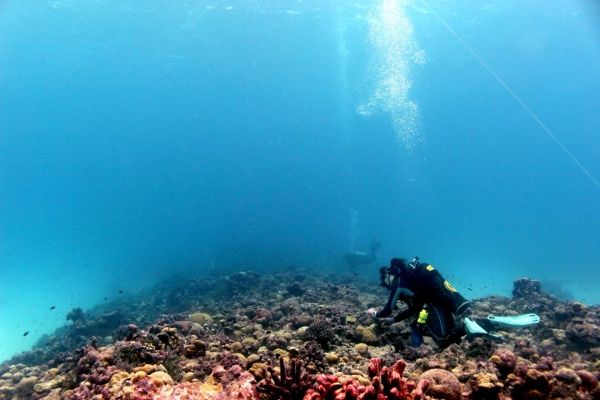University of Victoria biologists have discovered how some corals managed to survive a globally unprecedented heatwave, in a first-ever study that provides new hope for the long-term survival of coral reefs in the face of climate change.
“The devastating effects of climate change on coral reefs are well known. Finding ways to boost coral survival through marine heatwaves is crucial if coral reefs are to endure the coming decades of climate change,” says UVic marine biologist Julia Baum, the study’s senior author.
Published today in Nature Communications, the study presents the discoveries made by the international research team as they tracked hundreds of coral colonies on reefs around Christmas Island (Kiritimati), throughout the 2015-2016 El Niño. Heat stress from that El Niño triggered the third-ever global coral bleaching event, causing mass coral bleaching and mortality on reefs around the world. Its epicentre was Christmas Island, where the heatwave lasted an unprecedented 10 months.
Read more at: University of Victoria
UVic marine biologist Julia Baum sampling Platygyra colonies on Kiritimati (Christmas Island), 2019.(Photo Credit: Kristina Tietjen.)


